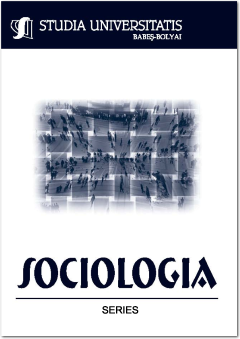BETWEEN STATISTICS, DEMOGRAPHY, AND MONOGRAPHIC RESEARCH: GH. RETEGAN (1916–1998), A(NOTHER) SOCIOLOGIST WITHOUT A SOCIOLOGY
BETWEEN STATISTICS, DEMOGRAPHY, AND MONOGRAPHIC RESEARCH: GH. RETEGAN (1916–1998), A(NOTHER) SOCIOLOGIST WITHOUT A SOCIOLOGY
Author(s): Corina DoboşSubject(s): History and theory of sociology
Published by: Studia Universitatis Babes-Bolyai
Keywords: living standards; fertility rates; social sciences; epistemology; communism;
Summary/Abstract: By exploring the professional trajectory of sociologist Gheorghe (George) Retegan (1916–1998), this article addresses the epistemological and personal reconfigurations of the field of social sciences in post-war Romania, highlighting the complex relations and professional rivalries in the field after the Second World War, and their consequences for social knowledge. My study explores Retegan’s published and unpublished works, archival documents, and an interview that Z. Rostás conducted with Retegan in the 1990s. I analyse three research ventures relevant for understanding Retegan’s professional trajectory and methodological choices: the 1948–1950 family budget research that Retegan coordinated at the Central Institute for Statistics; the 1957– 1959 monographic research he coordinated at the Institute for Economic Research; and his “farewell” to sociology and specialization in demography beginning in the 1960s. My article documents Retegan’s remarkable capacity to develop research by way of formulating new questions, methodologies, and techniques, on the basis of the main elements of empirical research he learned during his training in sociology under the supervision of Anton Golopenția. Retegan’s contributions to the field of empirical social research suggest how a context that was generally unfavourable for the development of social sciences (1948–1965) could be used in a creative way for the study of the social world. Epistemologically, the survival and even innovation of empirical research under unfavourable ideological and political conditions made possible the rehabilitation of sociology as a discipline in the much more favourable context of the second half of the 1960s.
Journal: Studia Universitatis Babes-Bolyai - Sociologia
- Issue Year: 65/2020
- Issue No: 1
- Page Range: 5-42
- Page Count: 38
- Language: English

